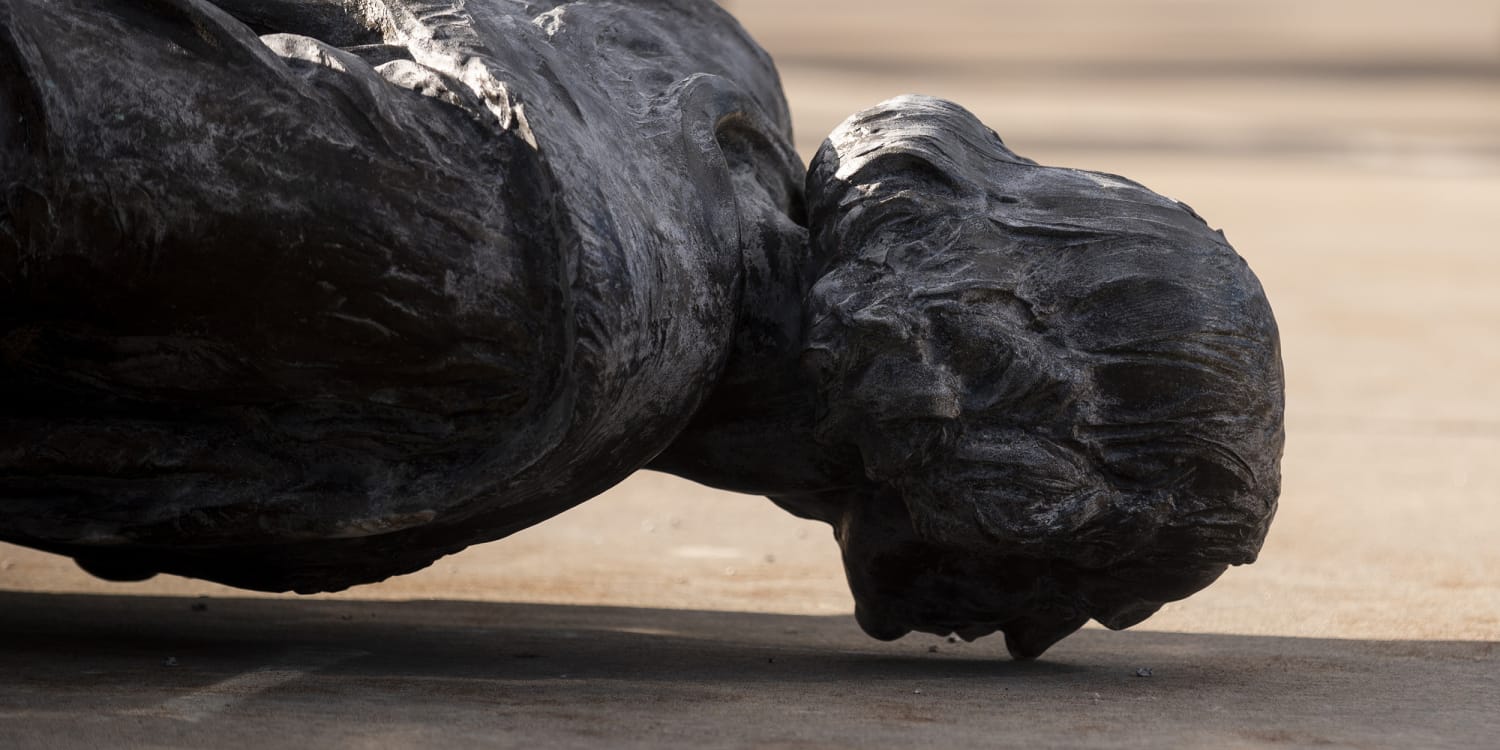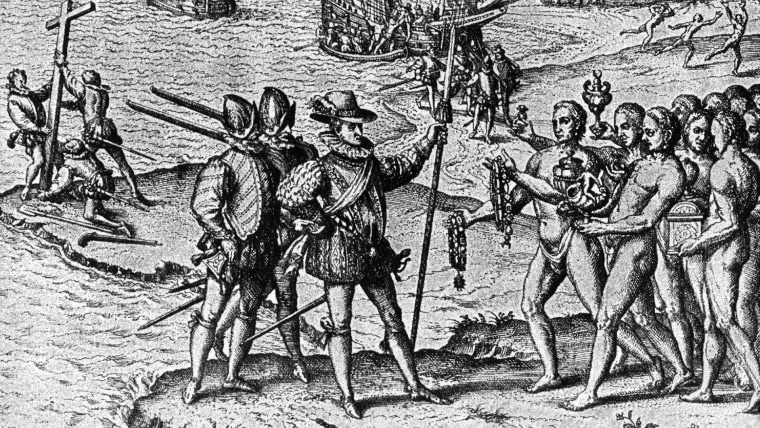As an Italian American tyke, I was proud to celebrate Columbus Day. It didn’t merit the attention that St. Patrick’s Day got in my Catholic school, with the Irish dancing, shamrocks and green cupcakes. But it still mattered. One of my ancestors discovered America. How cool was that?
It’s difficult to give up the myths that shaped the Italian story in the Americas. But these myths are holding us back.
Turns out the Irish had the better role model. No matter how you look at it, Columbus is not somebody we Italians should honor. And we should quit our efforts to salvage a holiday that brings us no glory while reinforcing the pain of the descendants of the people he exploited.
The historical record that has emerged over time is quite clear. Although Columbus was a skilled navigator, he mistakenly thought he could find a fast route to India and China by sailing West, and convinced the Spanish monarchs to bankroll his expedition.
Instead, he landed in the Bahamas and encountered the Taino people. When he met them, he wrote in his journal that these peaceful Indigenous people had the makings of “good servants” and put them to work mining gold — and facing amputation or death if they came up short. (Columbus was personally entitled to 10 percent of the booty; the rest went to Spain.) Later, he would ship thousands of Taino back to Spain to be sold into slavery, while the diseases the explorers brought decimated the tribe.
Even by the norms of the day, Columbus was excessive. As governor of the West Indies, he imposed such brutal punishments on anyone who got in his way — including the Spanish colonists who tried to defy or belittle him — he was sacked by his royal backers and returned to Spain.
Clinging to the need to honor Columbus goes beyond venerating one person. It also means keeping faith with a Eurocentric view of the world that exalts white male explorers who “discovered” continents that were inhabited by “uncivilized” barbarians.
Indeed, extolling Columbus helped the U.S. create an image of itself as exceptional. As his myth grew, he became the model for American daring and persistence against all odds, someone whose explorations had been blessed by Divine Providence. His voyage to America opened the door to the founding of the United States, thus was blessed by God, too.
How intertwined Columbus is with this American vision is evident in the number of monuments to him; according to researchers at the Monument Lab, he ranks third behind Lincoln and Washington. (The controversy over what to do with all those statues likely will play out for years.)
Italians weren’t even the focus of America’s original glorification of the explorer. It was only when Italian Americans were being lynched and the Italian government got upset that the Italian immigrants’ quest to honor Columbus and associate their heritage with him dovetailed with efforts to defuse a diplomatic controversy.
In 1891, 11 Sicilian immigrants were lynched in New Orleans after a mob blamed them for killing the city’s police chief, even though a jury hadn’t convicted them. Sicilians were targeted for lynching in part because they worked the same jobs as African Americans and often lived in their communities, leading Southerners to consider them more Black than white.
The New Orleans lynching was roundly praised. Rising political star Teddy Roosevelt called it “a rather good thing.” A New York Times headline was jubilant: “Chief Hennessy avenged. Eleven of his Italian assassins lynched by a mob.”
The Italian government was not so sanguine. It broke off diplomatic relations with the U.S. and demanded (and received) reparations. To further make up for the incident, President Benjamin Harrison in 1892 proclaimed a one-time holiday to observe the 400th anniversary of Columbus’ discovery of the New World. Harrison didn’t single out Italians, however, but rather extolled Columbus as “the pioneer of progress and enlightenment.”
Nevertheless, that proclamation ultimately set the stage for a federal Columbus Day holiday, created in 1934. The holiday “was central to the process through which Italian-Americans were fully ratified as white during the 20th century,” observed New York Times editorial writer Brent Staples.
So why should we keep referring to Columbus as an Italian hero? History already is moving us to a better place. Indigenous Peoples’ Day now replaces Columbus Day in 14 states, the District of Columbia and more than 130 communities.
I’m not the only Italian American on board with ditching the holiday. Last month, Italians for Indigenous Peoples’ Day testified before Massachusetts state legislators and urged them to replace the Columbus Day holiday.
Tellingly, the holiday’s defenders don’t even appear to acknowledge Columbus’ record of atrocities. Ignoring all the historical documents that show otherwise, Basil Russo, head of the Conference of Presidents of Major Italian American Organizations, continues to portray Columbus as a “good Christian” who treated Indigenous peoples “with respect and compassion.”
It’s difficult to give up the myths that shaped the Italian story in the Americas. But these myths are holding us back. They’re preventing us from creating a more honest Italian narrative, one that shines a light on the lives of our immigrant parents and grandparents and their heroism, and gives us better ways to celebrate our heritage.
If I were to nominate a new role model for Italians, it would be Mother Frances Cabrini, an Italian immigrant who in 1946 became the first U.S. citizen to be named a saint. Cabrini, like many immigrants, faced many obstacles and a lack of resources when she arrived, but persevered to help immigrants across the country. It was her work in the American West that prompted Colorado to designate the first Monday in October as Cabrini Day, replacing the state observance of the Columbus Day holiday.
For decades, the leaders of the American Indian Movement of Colorado had tried, unsuccessfully, to secure a state Indigenous Peoples Day. But they were gracious about the Cabrini holiday. They praised the saint as “the opposite of Columbus.”
Why can’t we Italians see how much richer our history is than the story of one directionally challenged explorer who spent most of his life outside Italy? Columbus never found the route to China and India he was seeking. We shouldn’t make our own wrong turn by continuing to honor his memory.
Source: | This article originally belongs to Nbcnews.com











